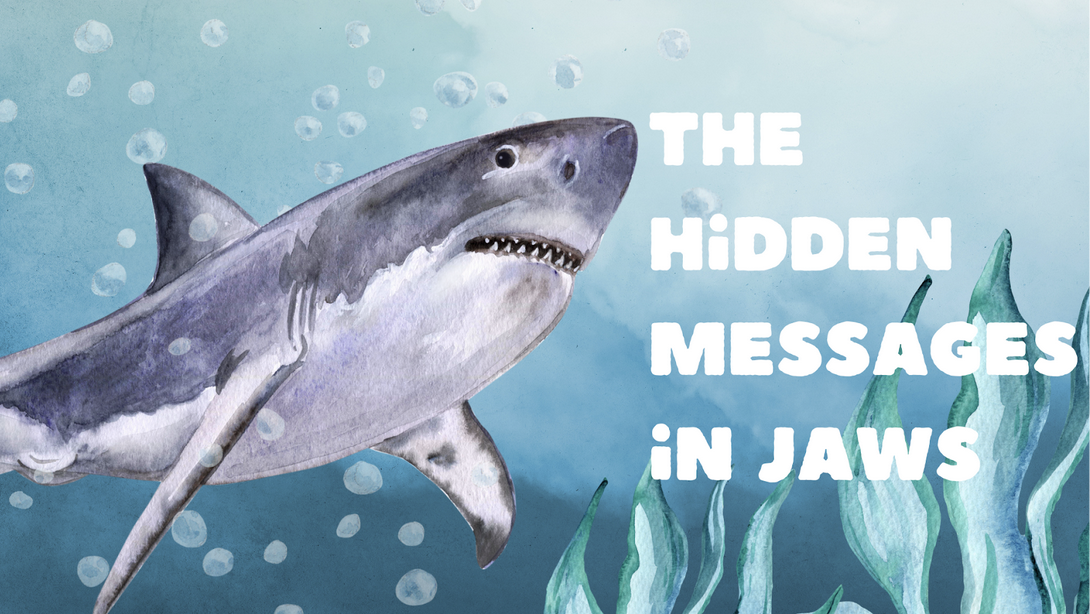The Hidden Messages in Jaws
“Jaws” hit cinemas in 1975, and any other movie would have lost its popularity in just a few years. However, this is not the case with Steven Spielberg’s iconic masterpiece, which remains relevant half a century after its release. It’s not just a movie about a dangerous shark. Instead, it hides metaphors about capitalism, governmental mistakes, and the society’s fear of the unknown. What are the hidden messages viewers might not have noticed when watching “Jaws?”
The Lasting Cultural Heritage of “Jaws”
Five decades after its release, the movie continues to shape the way people perceive fear and the unknown. The DNA of “Jaws” can be found in modern disaster films, where protagonists are forced to make life-changing decisions under pressure. Its impact has spread beyond the cinema sector, affecting video gaming and slots in non-GamStop online casinos, complemented by high stakes and psychological tension. Many games reflect immersive storytelling inspired by the renowned movie, so let’s explore its deeper senses.
Institutional Negligence and Government’s Mistakes
The failure of authority is the most evident message in “Jaws.” In the movie, the mayor leaves all the beaches open, regardless of the growing danger. His motivation is conditioned by the fact that the town’s economy heavily relies on tourism. Selecting profits over safety eventually resulted in many deaths that could have easily been avoided. Even small details like the shooting stars in Jaws contribute to the film’s atmosphere, subtly reinforcing the tension and underlying themes of misjudgment. Such leadership mistakes remain relevant to this day: Spielberg demonstrates how politicians prioritise money over the population’s well-being. This situation mirrors global crises, including environmental disasters and pandemics.
The Cost of Greed
Economy-driven decisions featured in the “Jaws” show the power of capitalism in modern society. Denial of the problem becomes the priority over actions to protect residents and visitors from the growing shark threat. In this context, the dangerous animal is more than a predator. Similar patterns appear in business trends in online gambling, where financial incentives can overshadow ethical considerations. The ocean, which is initially a space of freedom, becomes synonymous with corruption and unpredictable actions.
Environmental Impacts
When the movie was released in 1975, discussions on environmental safety weren’t as popular as they are now. However, Steven Spielberg managed to predict the future in this context. The “Jaws” describe the instincts of sharks, highlighting that humans shouldn’t attempt to interfere with nature. Predators are the symbols of the balance: the ecosystem strikes back when people don’t behave appropriately. This deep sense is widely covered in 2025, with humans being more aware of environmental friendliness.
Media Manipulation and Control
The control of information is a point of concern globally, which is one of the most powerful messages in “Jaws.” The government’s decision to hide the truth to maintain its power speaks about a broader societal issue. This theme might have been too speculative in the 1970s, but it clearly outlines many politicians’ actions in the modern era. Misinformation and false news are not rare on social media, and the problem becomes more widespread with increased Internet penetration.
Fear of the Unknown
Many are confident that things that people can’t see or understand hurt them the most, and this message is shown in “Jaws.” The movie was filmed when graphics and design technologies weren’t well-developed, and Spielberg had technical malfunctions with the predator’s simulation. This point seemed disappointing for the director, but eventually became one of the film’s significant strengths.
The lack of the shark in the frame increased the fear of the unknown, making the movie even more dramatic. “Jaws” reminds viewers that what lies beneath the surface is often more dangerous than what we can see. The shark represents the many people who fear what they can’t see with their own eyes, such as economic collapse, disaster, government lies, and personal trauma.
The Movie Reflecting Time
The “Jaws” was released in the period of instability: the rising distrust in authorities, wars, and scandals happened during that time. The movie shows the drawbacks of misinformation and institutional failure, mirroring public opinions. The shark is the representation of social fear. This theme continues to remain relevant in the 2020s, as the world regularly experiences collapses and unstable situations that frighten people. Modern audiences see the main dilemmas highlighted in “Jaws,” including political games and environmental problems.
Final Insight
At first glance, “Jaws” is just a thriller, but a deeper analysis shows a rich narrative with symbolism and societal critique. Spielberg unlocks the themes of capitalism and institutional negligence that often lead to disasters. Ignoring the natural balance is a topic that wasn’t widely covered in the 1970s, but is now among the main issues.
The fear of the unknown is a primary aspect of the movie, demonstrating that people are typically more afraid of what they can’t see. “Jaws” is not just about the dangerous predator; instead, it reflects the world we live in.

